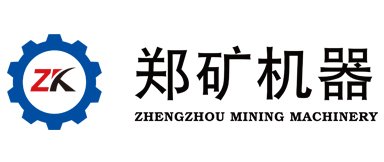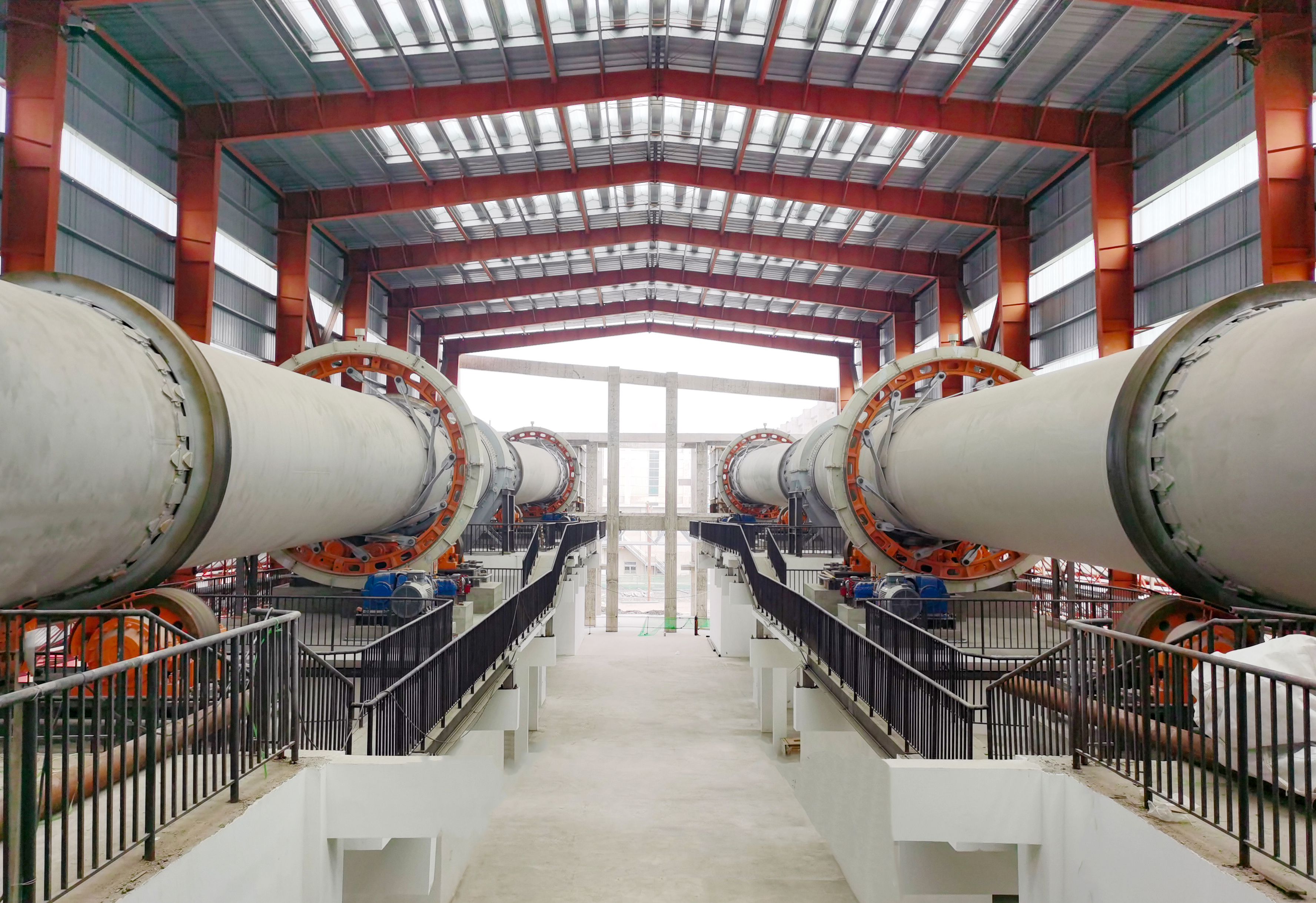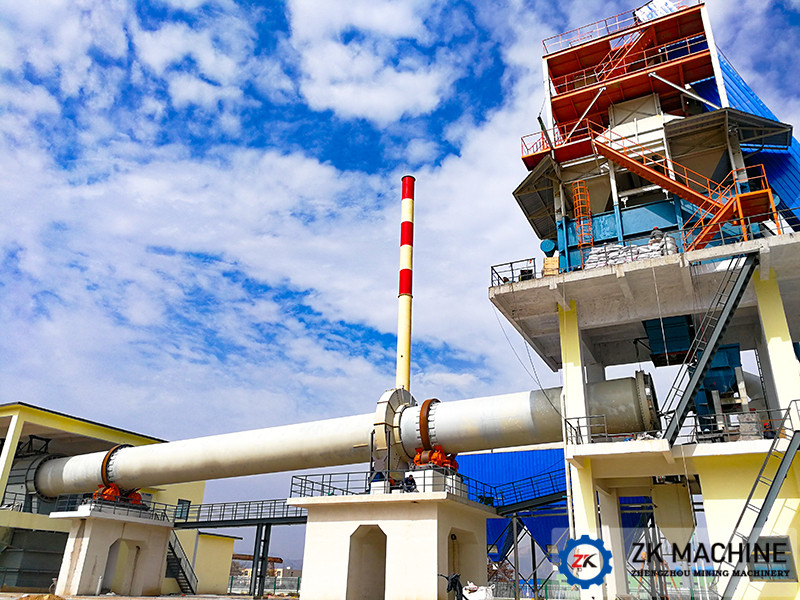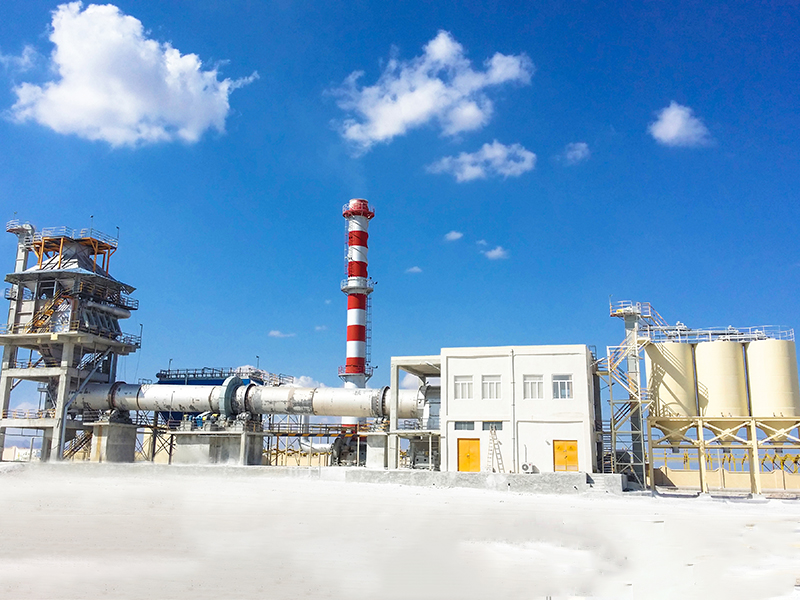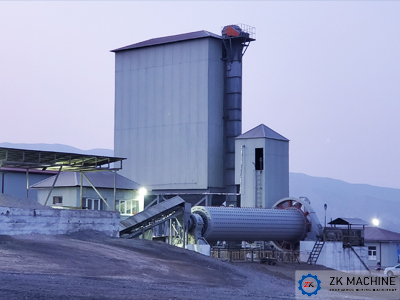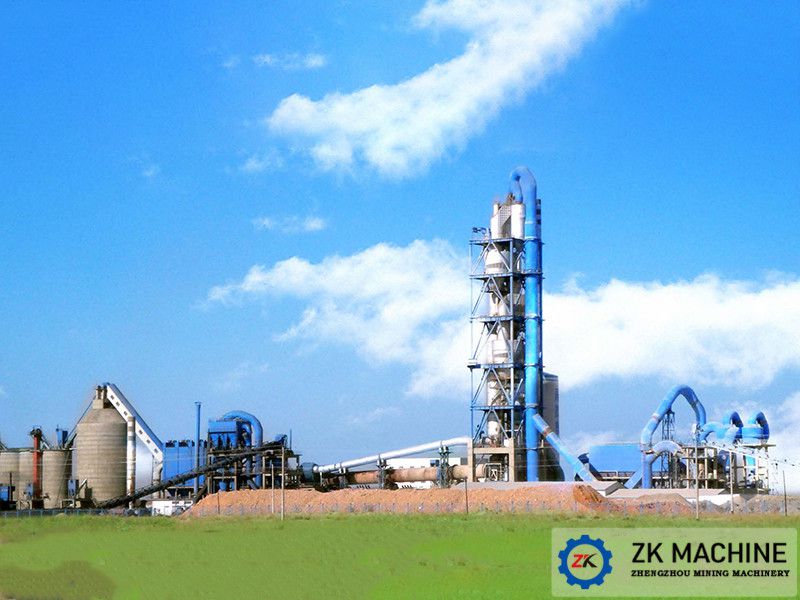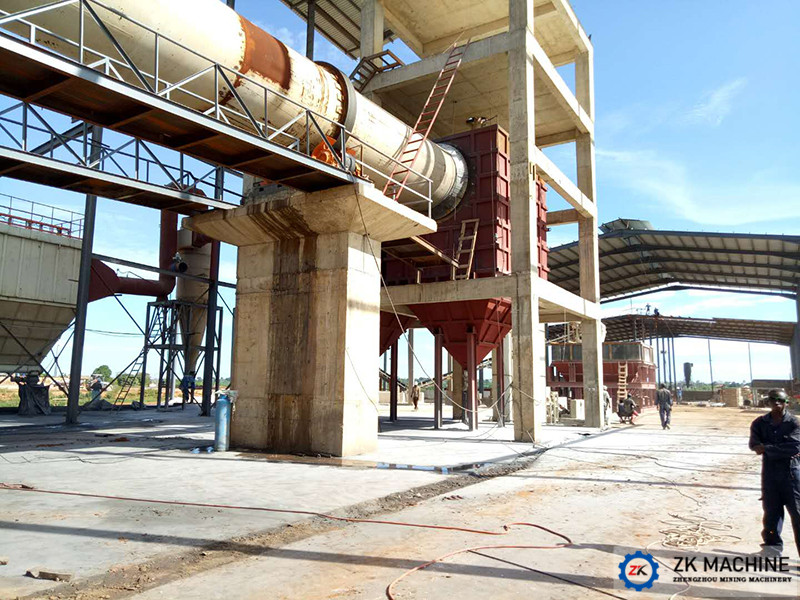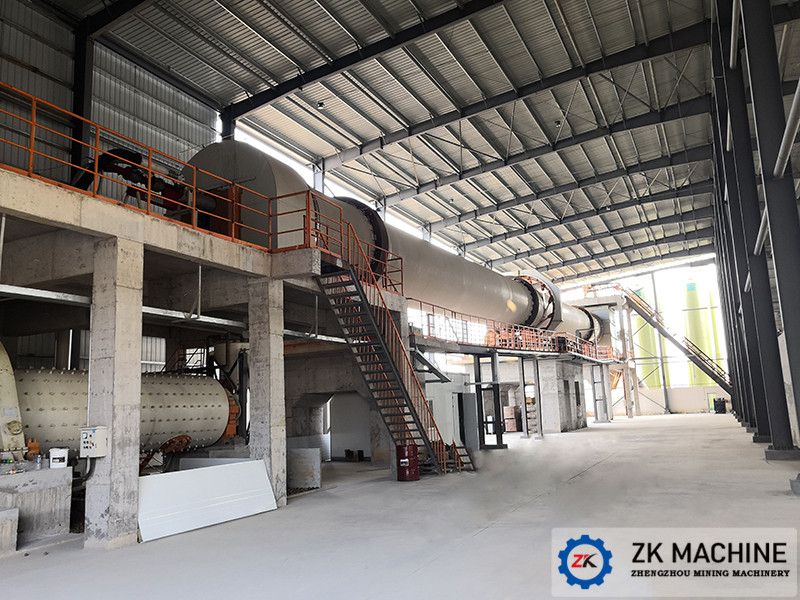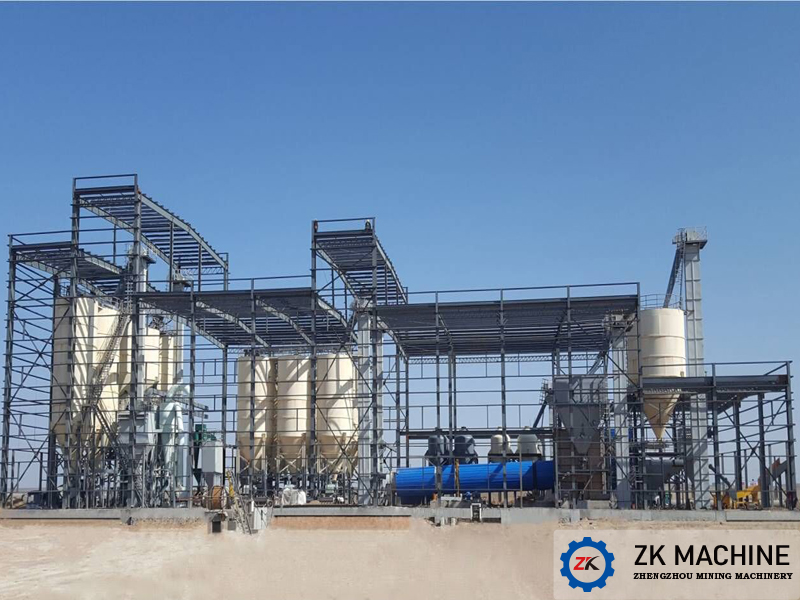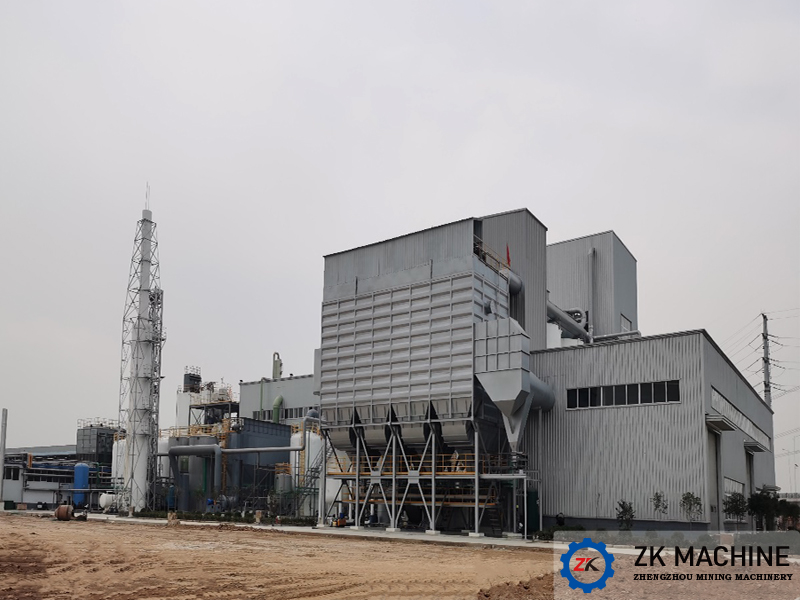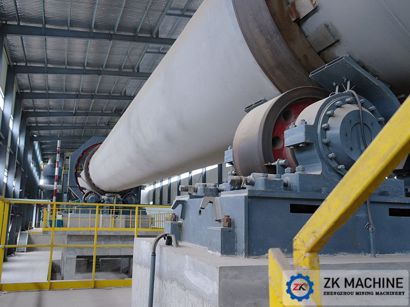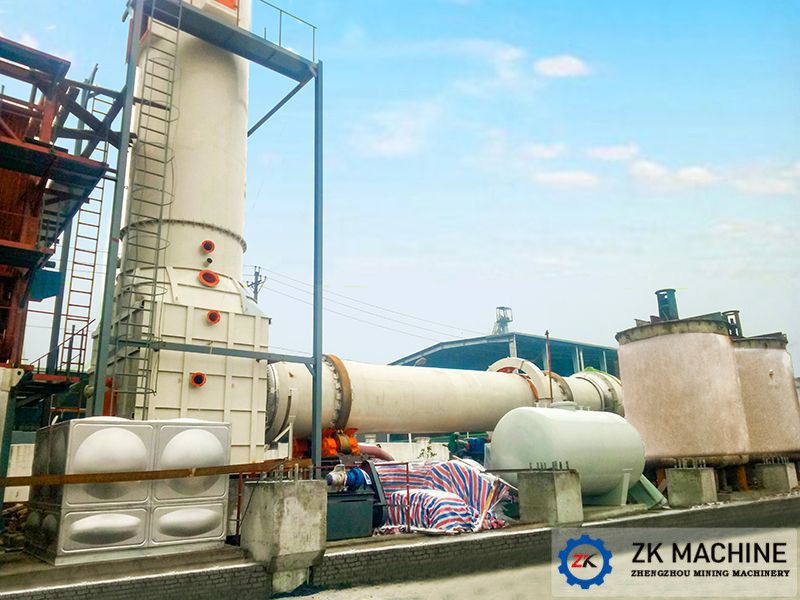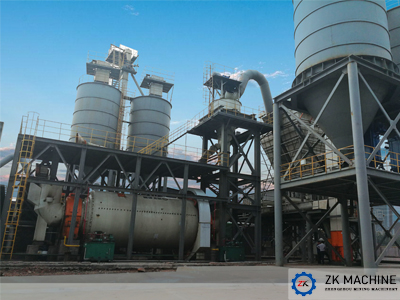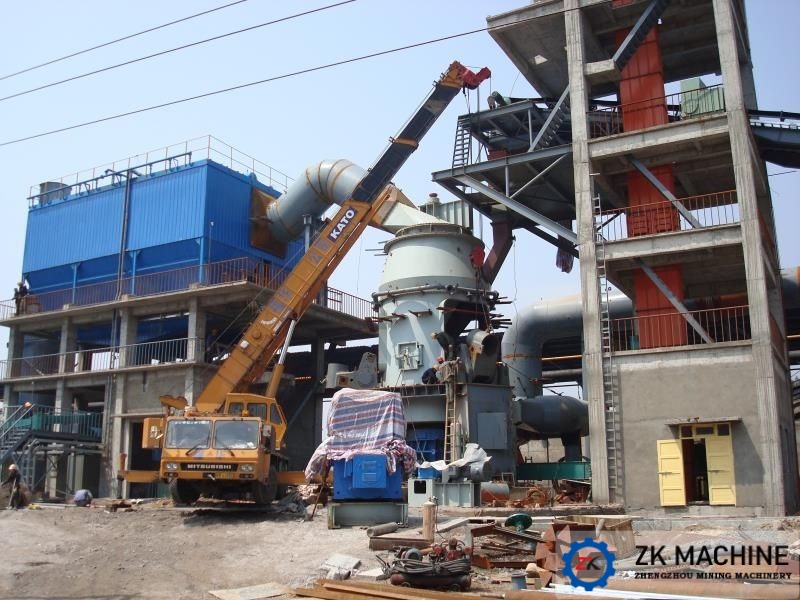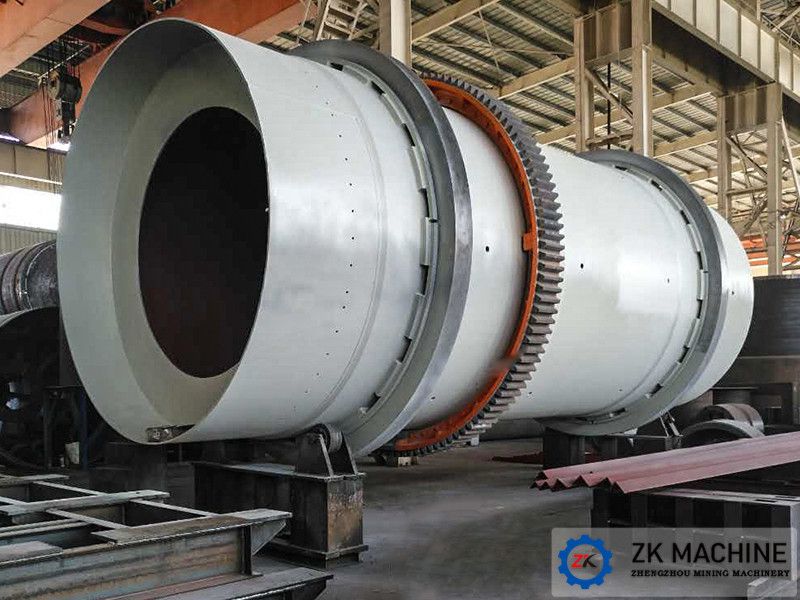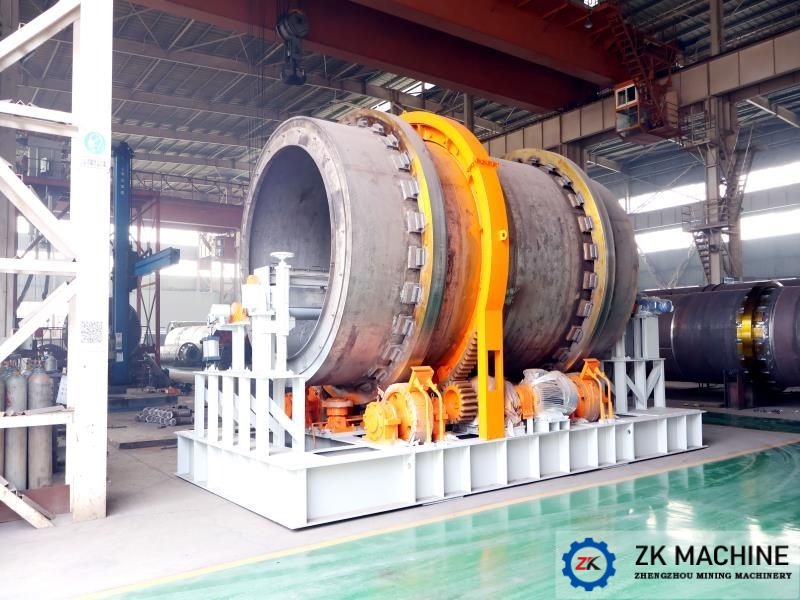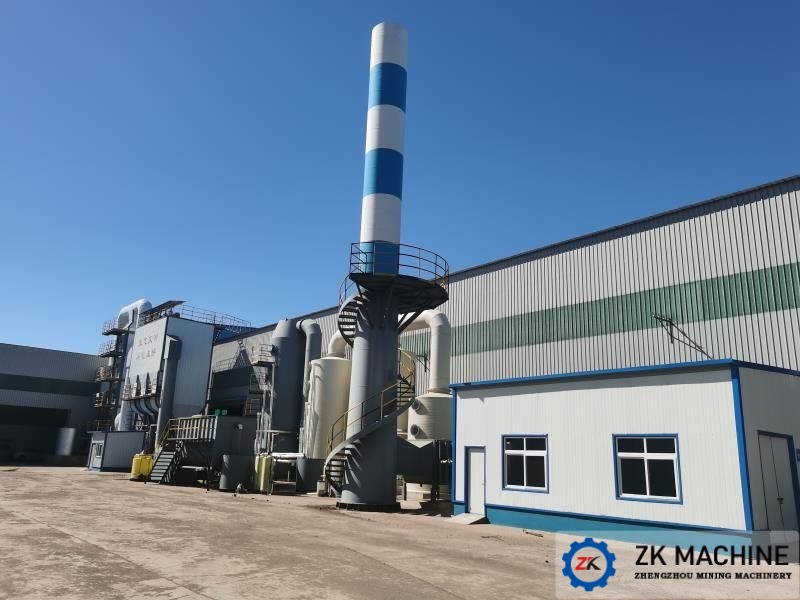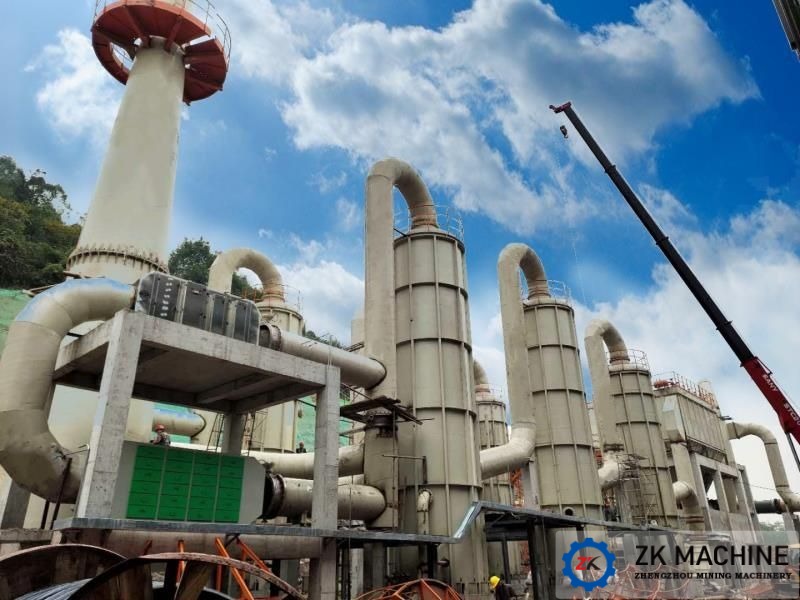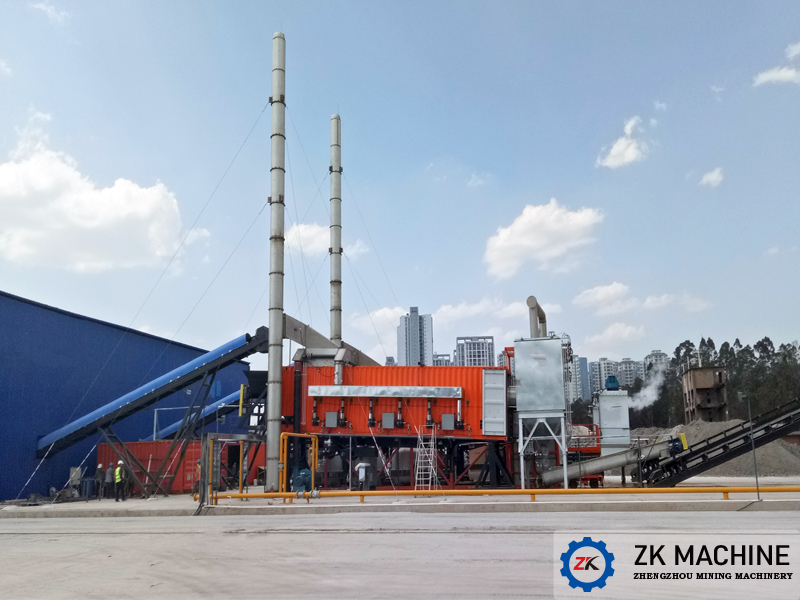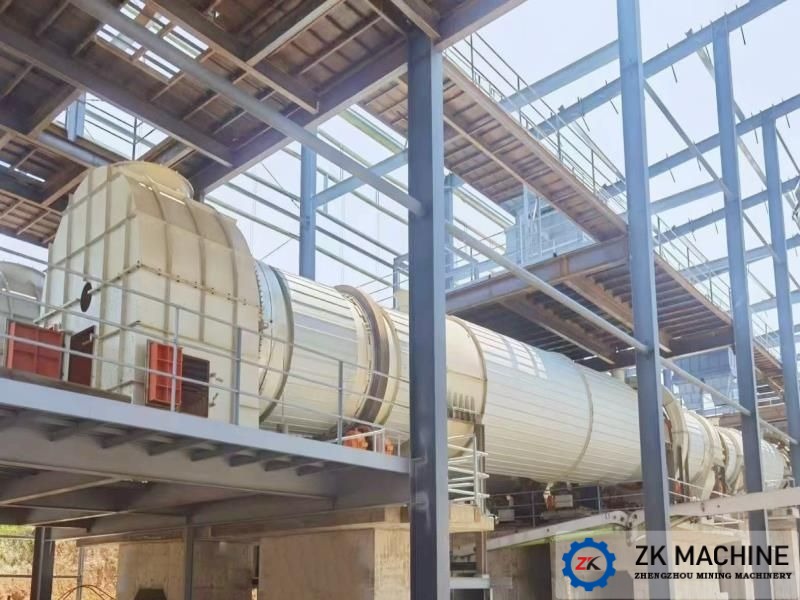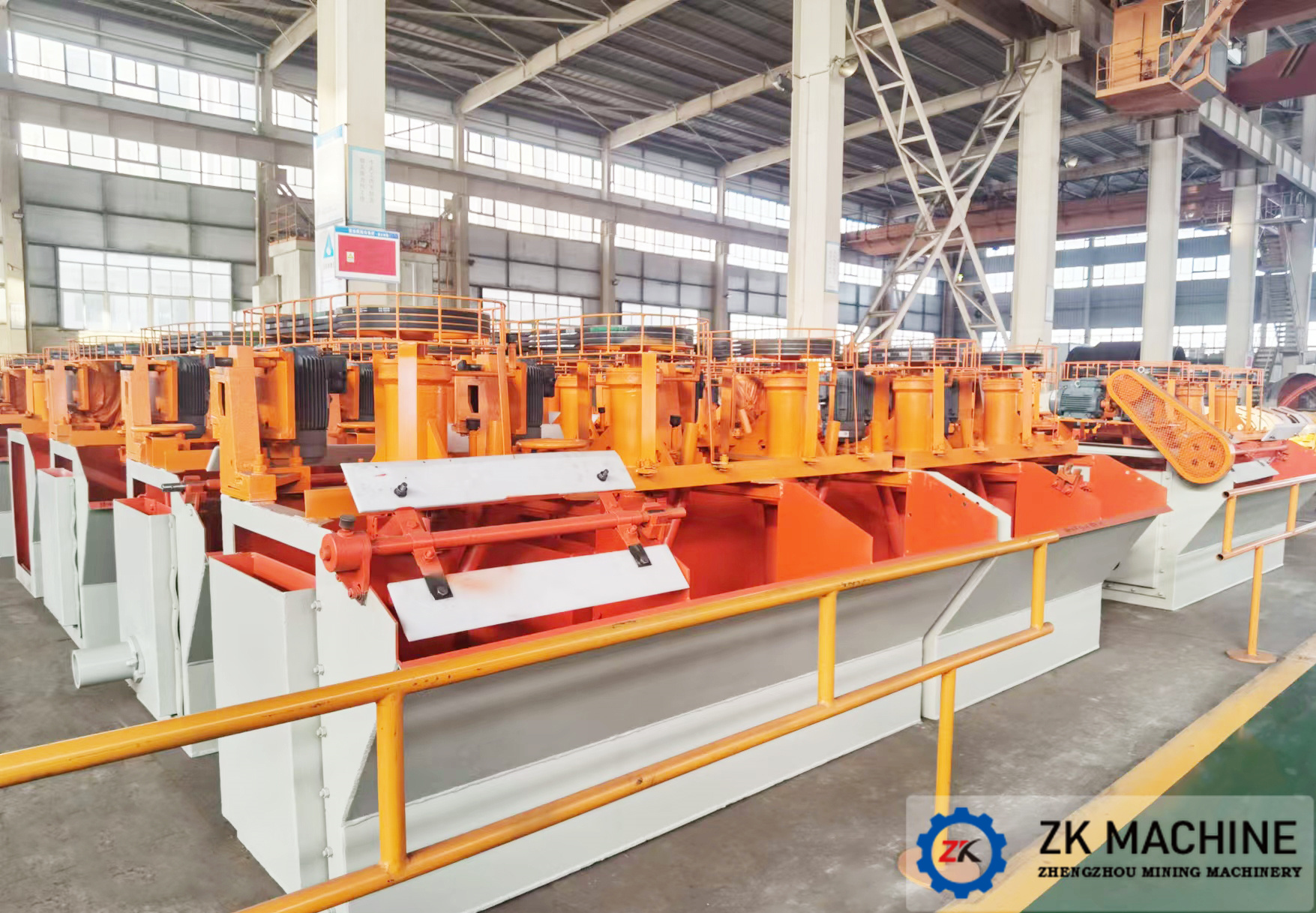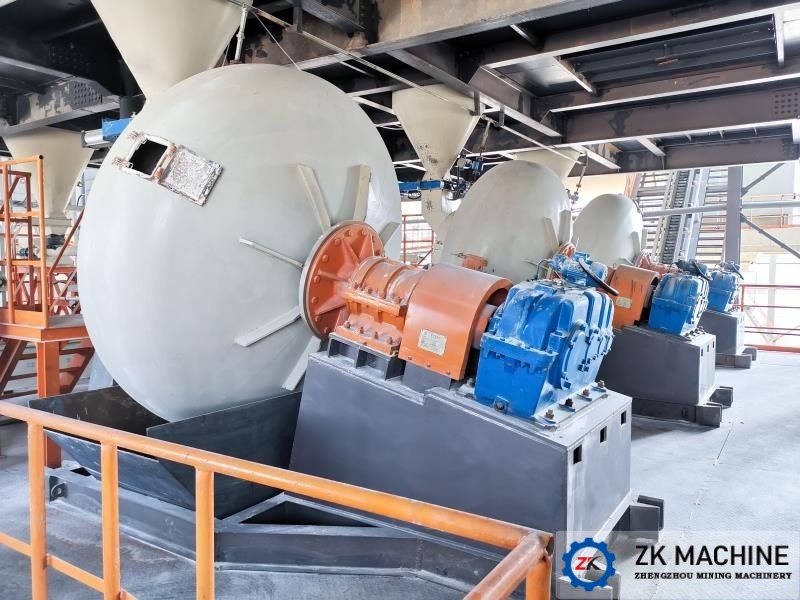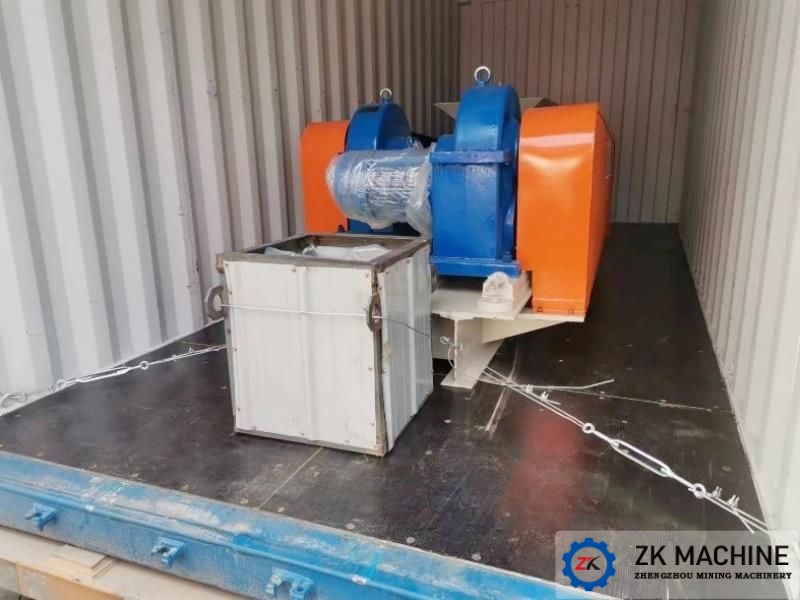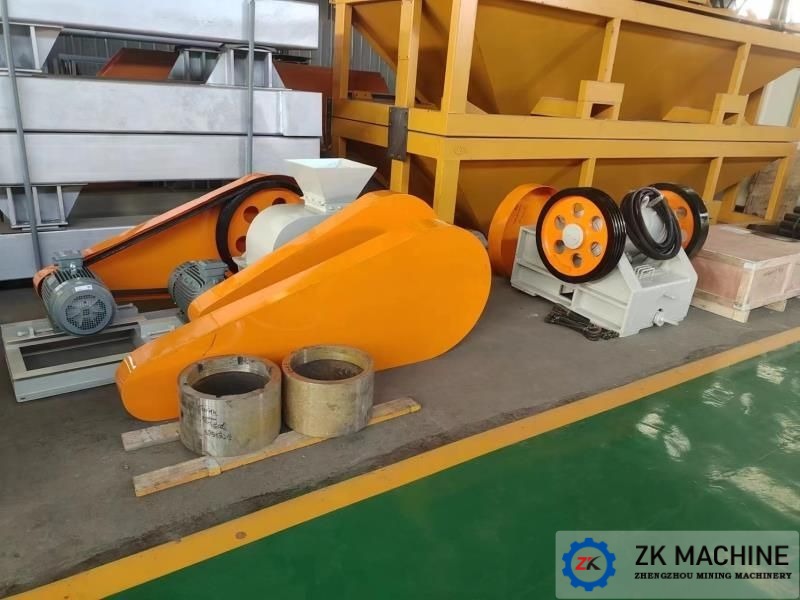Cooling phase of rotary kiln for active lime calcination
From quick lime away from the flame or the radiation area of the flame, it begins to enter the cooling phase. That is to say, in the rotary kiln calcination system, the regional division of cooling stage should be referred to the position of the final radiation from the high temperature of flame on the material, even though the material move to below of the coal powder burner. At this time, the heat transfer mode of the lime particles has changed from the heat absorption to heat dissipation.
After the lime particles with high heat entering the cooler, the transition between heat dissipation and heat transfer is performed under the influence of the secondary air, which is forced to cool down to blew 100℃.The secondary air is heated by the generated energy, which is helpful to fuel combustion after entering the kiln.
In the cooling process, the lime clinker in the cooler is usually completed within 40 minutes aim to realize the property of rapid cooling of active lime.
In a word, the relation among the preheating, calcination (fired), cooling is always interactional, interrelated and interdependent, in the calcination system of the rotary kiln with the vertical preheater and cooler. At the same time of the material is preheated in the preheater, the resolution ratio of 25% is required, which is the basic to complete the calcination process. The high quality lime products are calcinated by the material in the rotary kiln through a fine calcination environment, which is the way to produce the qualified products. The material completes the quenching and cooling process, which achieved the aim of producing.
The sufficient heat exchange between Lime clinker and the secondary air is helpful to the fuel combustion and to improve the burning quality and thermal efficiency. The good calcination environment also can stabilize the temperature of the preheater, the temperature of the kiln inlet and the ventilation environment in the rotary kiln.
